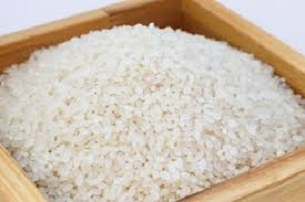Fish Sauce Substitute: Tasty Alternatives in A Pinch
Fish Sauce Substitute: Tasty Alternatives in A Pinch

Fish sauce is a spicy condiment that’s popular in Thai and Vietnamese cuisine.
The meat of the fish is fermented to make fish sauce. It’s made by salting little fish like anchovies and letting them ferment in huge barrels for several months.
The sauce is the end product, which can be bottled and used in savoury recipes.
Fish Sauce Substitute
Fish sauce, which is most usually associated with Asian cooking, provides flavour to dishes such as pad Thai noodles, stir-fries, kimchi and more.
It’s primarily salty and fishy, but it can also bring sweetness to savoury meals. The flavour of fish sauce is described as earthy and umami. The fish sauce substitute includes soy sauce, seaweed, tamari, hoisin sauce and oyster sauce. The reason for using the best substitute for fish sauce is because of allergy, vegetarians, and inaccessibility.
Fish sauce substitutes are used for a variety of reasons.
Seafood allergy; Food allergies occur when the immune system of the body generates antibodies that react with a specific type of food, resulting in allergic symptoms.
If you’re allergic to fish or shellfish or think you could be allergic to some of the chemicals in fish sauce, you should look into fish sauce alternatives.
Vegans and vegetarians: Even though fish sauce contains fish, vegans and vegetarians do not consume meat or seafood.
In meals like stir-fries and other Asian-style cuisines, vegans and vegetarians should look for ingredients like fish sauce. If a recipe calls for fish sauce, vegans and vegetarians must substitute an alternative or leave it out entirely.
Inaccessibility: In some regions, fish sauce is difficult to come by or unavailable. It’s often found in the Asian or cultural food area of most supermarkets and it’s also popular in Asian supermarkets.
If you don’t have access to fish sauce or don’t have any on hand, you might be able to finish the recipe using other ingredients.
Fish sauce substitutes in Use
Fish sauce substitutes usually take the place of the salty, savoury aromas that fish sauce brings to a dish.
The vegan and vegetarian-friendly alternatives, on the other hand, do not have a fishy flavour. By adding salty and umami qualities to your recipe, these fish sauce replacements help to enrich the flavour.
Soy sauce
Fish sauce can be replaced with soy sauce, which is prepared from fermented soybeans, water, salt, and wheat. Vegans will enjoy it as well.
Soy sauce is a decent substitute for fish sauce because it is a liquid condiment made from fermented ingredients.
It has the salty flavour of fish sauce and can be heavy in sodium, giving it a nutritional profile comparable to fish sauce.
Adding minced fish, such as anchovies or sardines, to fulfil the fishy flavour that fish sauce gives to many recipes is optional.
Tamari
The tamari is a gluten-free form of Japanese-style soy sauce that can be used in place of fish sauce naturally.
It’s like soy sauce, which can be used to replace fish sauce in equal amounts because it is a liquid with a salty flavour. A soy sauce variant.
It’s made in a different way than regular soy sauce, with distinct ingredients. Water, salt, and soybean-based miso paste are among them. It may also contain a form of brine known as moromi, as well as a fungus known as koji.
It contains little to no wheat, unlike soy sauce, making it a good choice for gluten-free people.
Because of its increased soybean protein concentration, tamari has a richer, bolder, and less salty umami flavour than soy sauce.
Worcestershire sauce (worcestershire sauce)
Fish sauce can have a sweet flavour, which you would not expect. If you’re seeking an alternative, Worcestershire sauce will give you the same flavour and saltiness.
Worcestershire sauce is a seasoning that enhances the flavour of steaks, stews, sauces, marinades, and other meals.
The strong savoury flavour of Worcestershire sauce has made it popular in England and the surrounding nations.
It’s a fantastic alternative to fish sauce, made with anchovies, molasses, tamarind, vinegar, cloves, onion, and other flavours.
Because Worcestershire sauce is fat-free, it’s a good choice for anyone trying to cut down on their dietary fat intake.
It’s a fantastic alternative to fish sauce, made with anchovies, molasses, tamarind, vinegar, cloves, onion, and other flavours.
Because Worcestershire sauce is fat-free, it’s a good choice for anyone trying to cut down on their dietary fat intake.
Oyster sauce
Because the oyster sauce is also a fish product, those looking for the most similar flavour profile to fish sauce may choose it.
Oyster sauce has a similar salty and fishy flavour to fish sauce, albeit it is not good for vegans, vegetarians, or persons with shellfish allergies.
Fish sauce has a fishier flavour and has a thicker consistency than oyster sauce. Oyster sauce is slightly thicker than fish sauce and would not be an acceptable option for meals that call for a delicate consistency.
To make oyster sauce thinner, one alternative is to add a little water.
Hoisin sauce
Hoisin sauce is made from fermented soybeans and combines the fermented qualities of fish sauce with the saltiness of soy sauce.
It’s a thick sauce that’s frequently used as a glaze or dip.
It’s commonly compared to American-style barbecue sauce because of its slightly sweet flavour. Because of its umami flavour, hoisin sauce can be used in place of fish sauce.
Seaweed
Seaweed is available in two forms: fresh and dried. Salads, broths, and sauces should all be made with fresh seaweed.
Most other foods, on the other hand, may benefit from dried seaweed. Both of these solutions are suitable for vegetarian and vegan diets.
The phrase “seaweed” refers to plants and algae that grow in water. Seaweed is nutrient-dense and abundant in glutamate, an amino acid with a distinct umami flavour.
As a result, many Japanese and Korean dishes include them in broths and soups.
Summary
Although the fish sauce is a ubiquitous Asian ingredient, it is not good for vegans or vegetarians. Furthermore, certain people may object to its taste, odour, or both.
Fish sauce substitutes may be sought by those with dietary restrictions or who prefer a less flavourful component.
Vegan fish sauce, Worcestershire sauce, seaweed, soy sauce, oyster sauce, tamari, and Hoisin sauce are all good substitutes.
All of them have different nutritional advantages, such as sodium and fat content. If you don’t have any dietary restrictions or food allergies that prevent you from eating fish, fish sauce can be a healthy addition to your diet if used in moderation.


